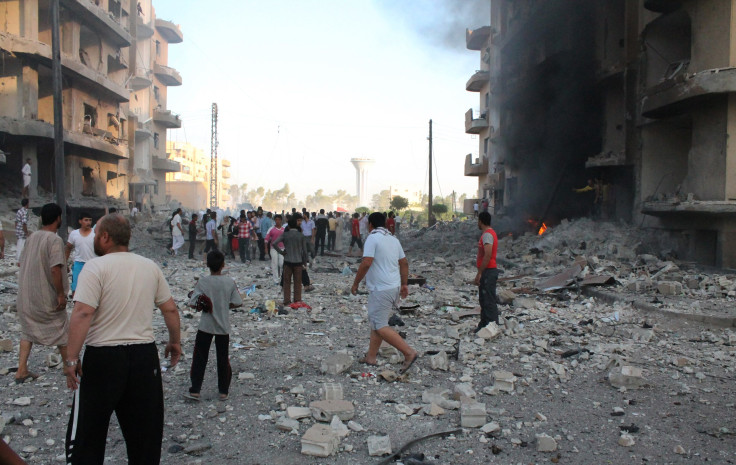Raqqa: Islamic State 'Capital' Targeted By US-Led Airstrikes In Syria Is Center Of Militant Group's Rule

The U.S.-led airstrikes against Islamic State group targets in Syria have focused on Raqqa, a northeastern city near the Turkish border that serves as the militant organization’s chief stronghold and de facto capital. Bombing of key targets within the city is considered a crucial aspect of the Obama administration's mission to “degrade and ultimately destroy” the Sunni militant group formerly known as ISIS.
ISIS trains its soldiers, stores its weapons and rules its conquered territory from Raqqa, according to CNN. The militant group seized control of the city in May 2013 from other militant groups amid the chaos caused by Syria’s ongoing civil war. Since then, ISIS leaders have turned Raqqa into the hub of its self-proclaimed caliphate, which includes vast tracts of land in Syria and Iraq. Other militant groups, including the Nusra Front, a former al Qaeda affiliate, also maintain bases in Raqqa.
ISIS has imposed a strict religious law on the city’s 220,000 inhabitants, including the segregation of men and women and mandatory daily attendance at local mosques, NPR reports. Smoking and alcohol are strictly forbidden. Non-Sunnis and accused government loyalists are subject to mistreatment ranging from robbery to summary public execution, and Western journalists are not permitted to enter the city. Despite summer temperatures that regularly exceed 100 degrees Fahrenheit, "Western" clothing is forbidden and women are covered head to toe in traditional burqas.
“People have developed a tough skin,” an activist told the Wall Street Journal about conditions in Raqqa. “They do not have feelings anymore. You can go watch an execution and then turn around and move on. It has become a normal thing.”
While many Raqqa residents reject the rule of the Islamic State group, others are too fatigued by war to fight back or too poor to flee. Local residents willing to accept the group’s rule receive the food, shelter and protection that Syria has lacked since the 2011 uprising against President Bashar Assad led to the large-scale collapse of government infrastructure. ISIS has also created a functioning system of taxation, schools and courts in Raqqa, the Washington Post notes. But some basic needs, such as specialized medical care, no longer exist within the city, according to NPR.
Islamic State propaganda offers Raqqa as an example of the ideal life within the so-called caliphate – a militarized state with strict adherence to hardline Islamic ideals and zero tolerance toward those who object. “What I see in Raqqa proves that the Islamic State has a clear vision to establish the real meaning of the word,” a schoolteacher told the New York Times. “It is not a joke.”
© Copyright IBTimes 2024. All rights reserved.












